Archive for the ‘Artists Mentioned in Entries’ Category
Entry 659 — A Tribute to the Piano
Saturday, February 18th, 2012
I had high hopes for this one, which I composed yesterday. I even thought I might work a sequence out of it, using the Klee ship “musical theme” as the first step of a visual symphony. But I wasn’t satisfied with what I did with the ships. As I worked with them, though, I came up with a lot of minor ideas I liked. The main one was a suddenly conscious attempt to provide a metaphor for the coming of spring. But I also liked breaking up what was originally as single framed image, and changing the sizes of each unit. Grey-scaling the first two tiny ones seemed a nice touch, too. And the escape of the final ship! I didn’t like my dividend too well, either–after my initial enthusiasm for it (being a sucker for anything having to do with spring). For some reason it doesn’t seem quite there, for me. Maybe I’ll simplify it to, “a brook’s revived consideration of an April countryside.” Yes, I think I was trying for too much. . . .
.
Entry 657 — My Motto as a Poetry Critic
Thursday, February 16th, 2012
Thinking about what Tony Robinson had at his blog spurred me to this motto of my own (obnoxious) practice as a poetry critic: Try for maximal understanding of the nature and value of what I’m critiquing, fully committed to the advance of poetry, as I understand it, and expressed with the best balance of clarity and fresh language I can manage. I originally continued with “–with no significant suppression of emotion, regardless of the tender feelings of the hyper-offendable,” but upon reflection found that nice to say but too secondary for this motto.
Better: Using the the best balance of clarity and fresh language I can manage, try to express maximal understanding of the nature and value of what I’m critiquing, fully committed to the advance of poetry, as I see it. Ah, but I now see that “the value of what I’m critiquing” would include what the latter does to advance poetry. Ergo: Try, using the the best balance of clarity and fresh language I can manage, to express maximal understanding of the nature and value of what I’m critiquing.
And here’s a copy (an imperfect one) of my motto as a poet:
.
Entry 656 — A Clone of Shakespeare
Wednesday, February 15th, 2012
To continue my argument that the arts progress just like verosophy does (and take care of this entry with minimal effort), here’s a question: if a clone of Shakespeare had been created in 1980 and he was now a professional actor writing plays for the stage and screen, would they not be better than the ones he wrote four hundred years ago? Would he not be able to improve on what he composed then?
.
Entry 655 — A Response to a Blog Entry
Tuesday, February 14th, 2012
It’s at Anthony Robinson’s blog here.
Here’s what I said:
“Inaccessible writing” as writing not like I do, yes–and the related “incomprehensible poetry” without a hint that others may find it comprehensible–even the critic himself if he really tried. I try never to label any poem inaccessible although I will confess I can’t figure out a poem when that’s the case.
Good words on the so-called “principal aim”–but I would add that I would like to know why a poetry for the few should be denigrated. Should no one compose operas because, in Crews’s words, “most audiences will have trouble wrestling (them) into meaning?” Or cook really far-out gourmet dishes? Crews should have said he couldn’t say anything intelligent about Miller’s book, and ended his “review.”
Can’t say I think much of Crews’s example of Miller, when he’s good. Wind does have a sound, it seems to me, since–as I understand it–sound is what happens when something causes the air to vibrate which in turn causes mechanisms in the ear to vibrate. The wind, being air, would do this directly. Or, in the poem, indirectly, by causing trees to vibrate which causes the air to vibrate which causes the auditory mechanisms to vibrate. But maybe I’m wrong. In any case, all the poet seems to me to be saying is that the room is silent except for the sound of the wind in the trees.
Good question, whose ear does it appeal to. Seems to me a competent critic would say what the lines do auditorily that will tend to seem musical to most people, such as repeat words and syllables, which this passage does; but it doesn’t seem to me to do much else. The critic need not point out what I call a poem’s “melodations” as good, just point them out, since some readers may miss them–or hear them but not fully appreciate them.
I do agree with Crews that a poem needs some kind of point of stability–what I call a unifying principle–to deviate interestingly from. I’m big on titles, too, but certainly don’t think lack of one can spoil a poem. I’m not confident that Crews can recognize the most interesting unifying principles, some of them quite delayed.
Like all critics with readerships (as I believe Crews may have, for I think I’ve heard of him), he seems not to say much about poetic technique–subject matter and points of view seem to be for him all that matters in a poem.
I think you captured him quite well, young Anthony. Thanks for a report that got me involved enough for all this.
.
Entry 653 — A Response to Hal Johnson’s Poem
Sunday, February 12th, 2012
Here’s Hal Johnson’s visio-infraverbal poem again:
”Lost in thought” is the simplest explication of this, but a better reading focuses on thought that is opposed, disrupted, damaged and finally sent in the wrong direction back to its futile beginning. With “ugh” and “tough” being disconcealed in the process further to suggest the losing struggle for meaning expressed. In short, a deft pwoermd. A visuaol one as well as infraverbal because you can see the word’s letters metaphorically enacting the struggle.
.
Entry 652 — An Infraverbal Poem by Hal Johnson
Saturday, February 11th, 2012
Here’s an infraverbal poem–actually a visio-infraverbal poem–Hal Johnson posted at New-Poetry:
.
Entry 650 — Some Anti-Philogushy
Thursday, February 9th, 2012
Me Versus B. H. Fairchild and Others He quotes
Language can be a way of rescuing the hidden life, and that way is poetry. You can’t rescue any hidden life, whatever that is, with prose? Or some other art? Or science? Why wouldn’t using language to drown certain aspects of unhidden life be equally or more valuable?
Glenn Gould: “The purpose of art is the gradual, lifelong construction of a state of wonder and serenity.” And wonder is everything to a poet. It sure isn’t everything to me. It and serenity are only two of many pleasures it is the function of art to provide. Its manner of providing them is what sets it apart from verosophy and other endeavors which can, and try, to lead to wonder and serenity, and other pleasures.
Mandelstam: “We will remember in Lethe’s cold waters / That earth for us has been worth a thousand heavens.” Nice thought–but unattainable heavens to dream toward are a high good, too.
Seven propositions:
1. By way of Wittgenstein and Heidegger: A poem is a verbal construction which, through an array of rhetorical and prosodic devices of embodiment, achieves an order of being, an ontological status, radically different from that of other forms of discourse (with the exception of certain kinds of descriptive and fictional prose). I agree: a poem is a verbal construction different from almost all other verbal constructions.
2. Poetry occurs at a considerable distance from the ego. As does almost anything else I can think of, when it isn’t nothing but ego.
3. There exists an infinity of nonverbal meaning. Which the infinity of possible verbal meaning can express.
4. Science is progressive, but Art is not. It doesn’t get better; it just gets different. (The relevance and utility of all poetic forms.) See Mandestam. All the arts, like all the sciences, have become vastly superior to what they were hundreds or thousands of years ago, but anti-progressives mistake the sentimentality that becomes more and more attached to the old because of their age for aesthetic rather than nostalgiacal value. Compare the clumsy “novel” in the Bible about David with almost any competent commercial novel of today, for instance. Consider how much more of existence the best art of today is about compared with earlier art. For just one thing, today’s art has a vastly larger tradition to make allusions to than previous art had. There have been artists in the past as great as our best, but what our best have produced is significantly better than what they did in part because of the what the artists of the past did. (Note, this is a subject requiring a book.)
5. Rules are made to be broken; techniques are made to be used. (They were never rules anyway; they were techniques. The freedom of the artist, like that of the lathe machinist, is the freedom to choose those techniques, those tools, that he deems necessary for the task at hand. The refusal to use technique–and, obviously, to learn it–is the refusal to be an artist, or at least a free one.) I more or less agree with all this, but I wonder how one can avoid using some technique.
6. Form is an extension of subject matter rather than of ideology or religious belief. Every work of art requires a container; I call that container form; one calling it “an extension of subject matter,” if I understand him, needs to tell me what, then, is containing it and the subject matter it is an extension of. I don’t know what ideology and religious belief have to do with it; how would they be not subject matter?
7. Meter is not the reins to keep the horse of the poem in check; it’s the heartbeat of the horse. Drop the reins. (Clearly this is an argument for meter rather than against it.) It is almost impossible to convince poets who never bothered to learn prosody that meter is something that emerges from within the language rather than something that is imposed externally upon the language. Even conversational English is very loosely iambic. I think meter is both natural and imposed–necessarily imposed to add predictability to balance the difficult-to-accept unpredictability of horses going beyond prose that poetry at its best is.
A poet is always limited by the fact that he has to write for other human beings. Just to be argumentative, I would say that a poet’s having to write for others (and he needn’t) greatly increases his field of play. (Note that our Wilshberian’s poet writes rather than composes. It never occurs to any Wilshberian that a poem might be more than words.)
.
Entry 649 — Some Philogushy from B.H. Fairchild
Wednesday, February 8th, 2012
“Philogushy” is my term for “love of gush.” It’s practiced a good deal by poets. Once again I could think of nothing to post here, so I stole the excerpt below from 25 pages of journal entries by poet B.H. Fairchild that are in the latest issue of New Letters, a magazine I’m reviewing for Small Press Review. I knew nothing about Fairchild but apparently he’s very well-known, and a grant-winner.
Language can be a way of rescuing the hidden life, and that way is poetry.
Glenn Gould: “The purpose of art is the gradual, lifelong construction of a state of wonder and serenity.” And wonder is everything to a poet.
Mandelstam: “We will remember in Lethe’s cold waters / That earth for us has been worth a thousand heavens.”
Seven propositions:
1. By way of Wittgenstein and Heidegger: A poem is a verbal construction which, through an array of rhetorical and prosodic devices of embodiment, achieves an order of being, an ontological status, radically different from that of other forms of discourse (with the exception of certain kinds of descriptive and fictional prose).
2. Poetry occurs at a considerable distance from the ego.
3. There exists an infinity of nonverbal meaning.
4. Science is progressive, but Art is not. It doesn’t get better; it just gets different. (The relevance and utility of all poetic forms.) See Mandestam.
5. Rules are made to be broken; techniques are made to be used. (They were never rules anyway; they were techniques. The freedom of the artist, like that of the lathe machinist, is the freedom to choose those techniques, those tools, that he deems necessary for the task at hand. The refusal to use technique-and, obviously, to learn it-is the refusal to be an artist, or at least a free one.)
6. Form is an extension of subject matter rather than of ideology or religious belief.
7. Meter is not the reins to keep the horse of the poem in check; it’s the heartbeat of the horse. Drop the reins. (Clearly this is an argument for meter rather than against it.) It is almost impossible to convince poets who never bothered to learn prosody that meter is something that emerges from within the language rather than something that is imposed externally upon the language. Even conversational English is very loosely iambic.
A poet is always limited by the fact that he has to write for other human beings.
* * * * *
Most of the other entries are at this level. some stupid, some interesting, none what I’d call a serious attempt to understand what poetry is, rather than what the effect of poetry the definer admires is. Subjective philogushy rather than objective verosophy. I’m not going to discuss any individual entries now so as to leave myself something to write about tomorrow.
.
Entry 647 — “The Four Seasons”
Monday, February 6th, 2012
Entry 646 — “Homage to Wordsworth”
Sunday, February 5th, 2012

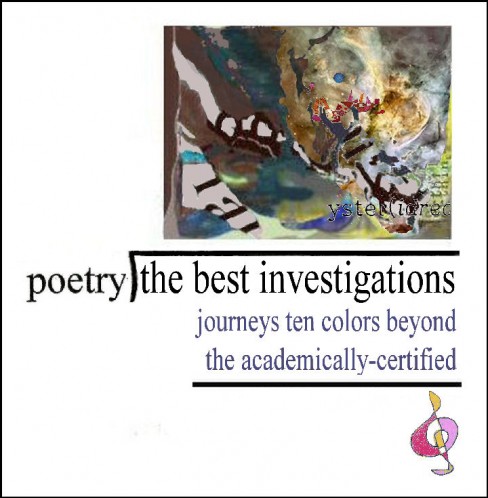


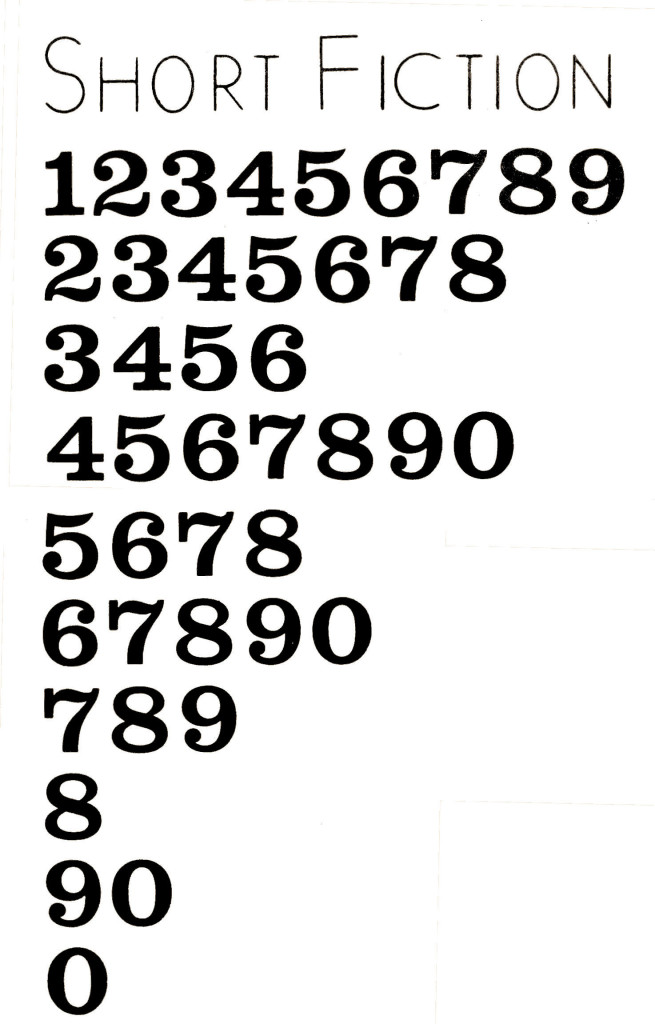
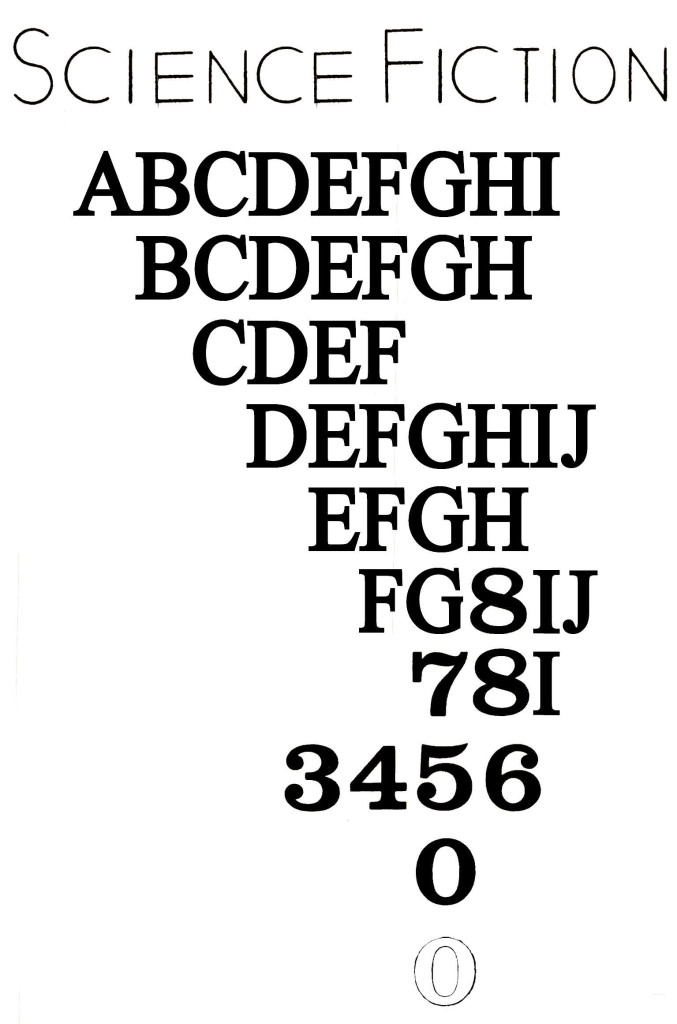
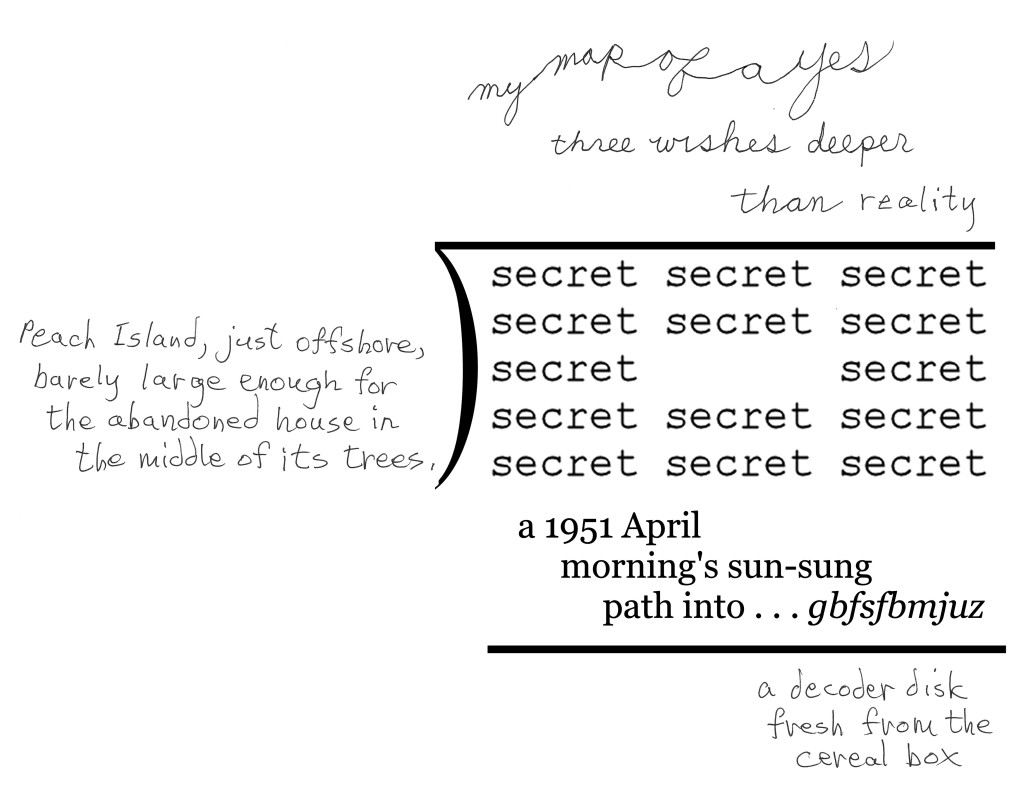
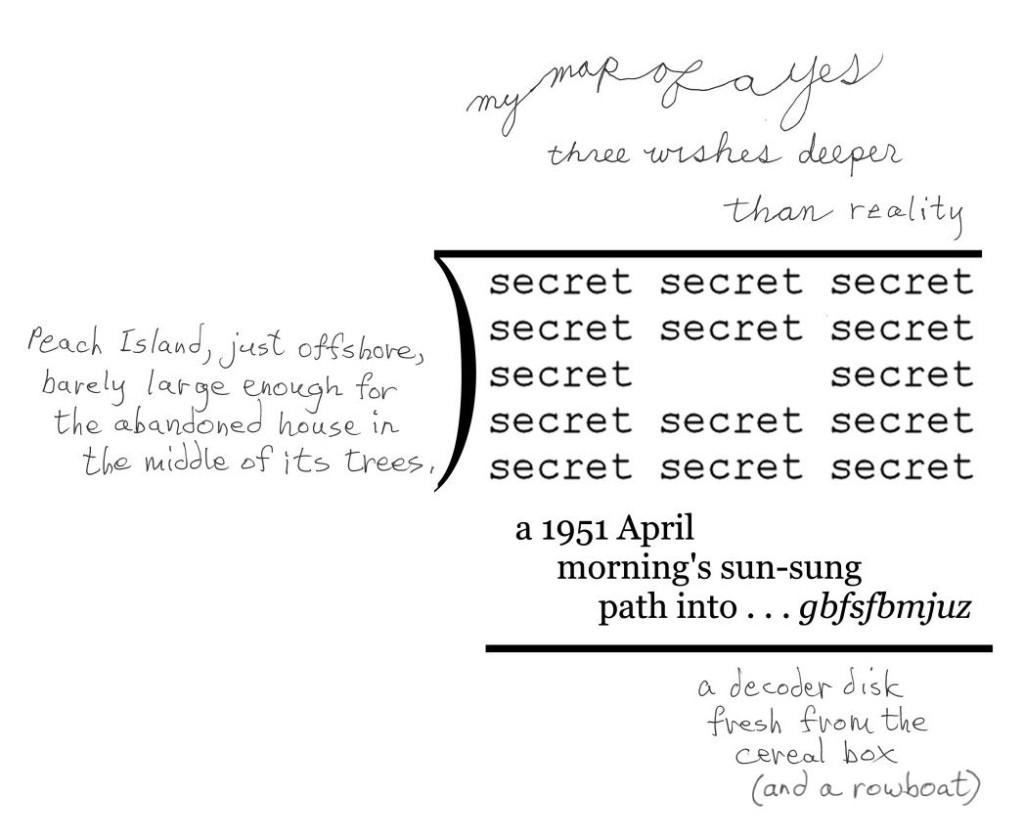
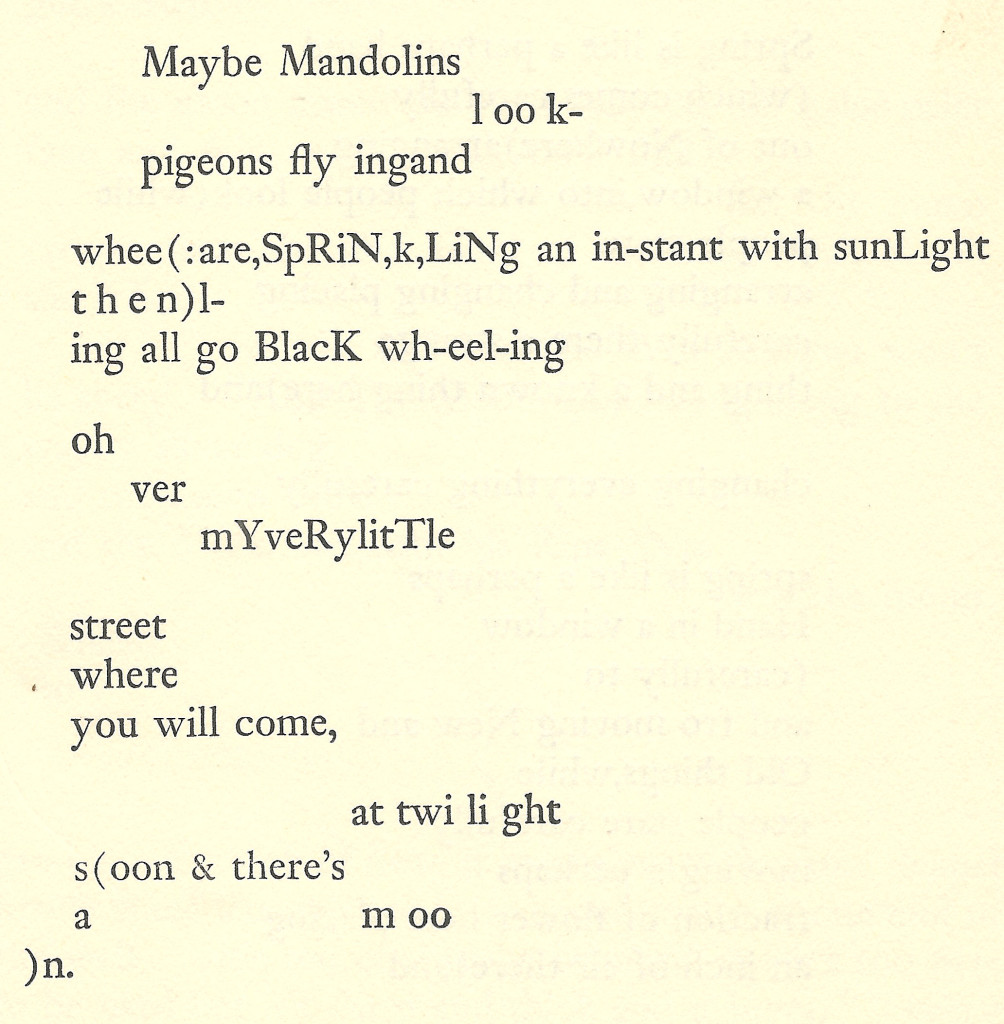
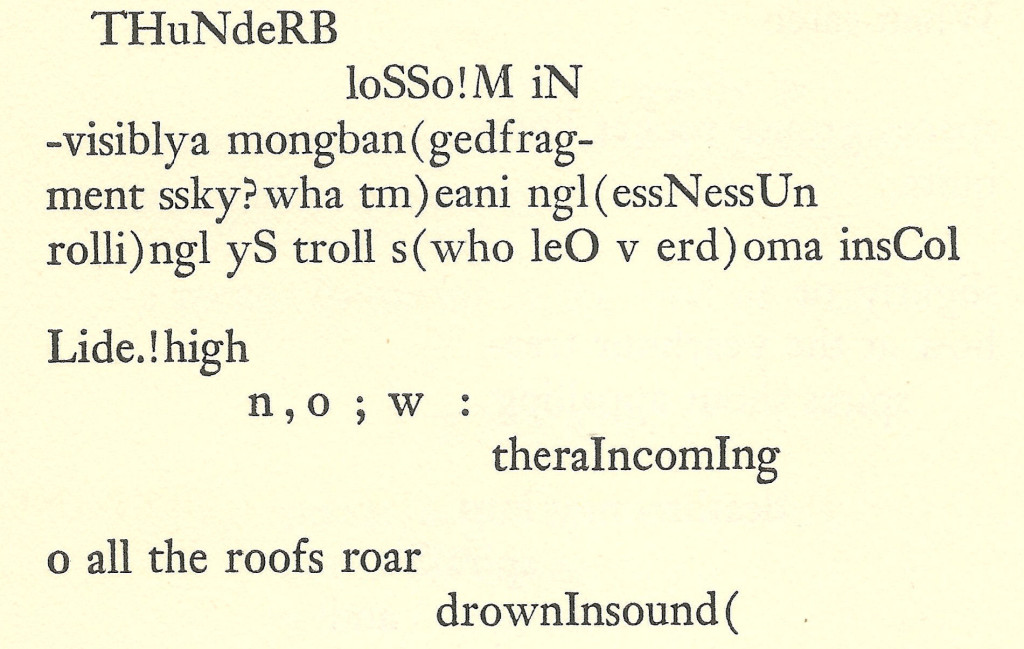
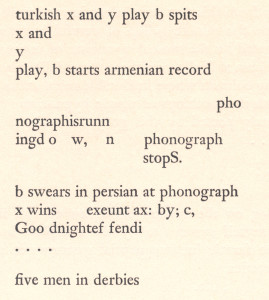
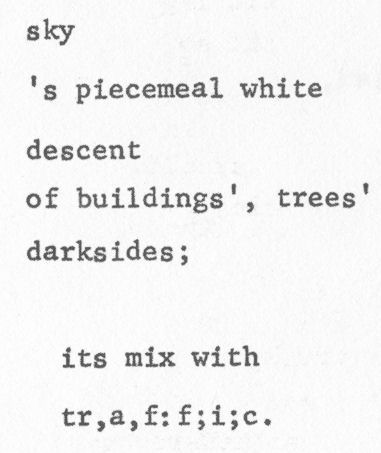

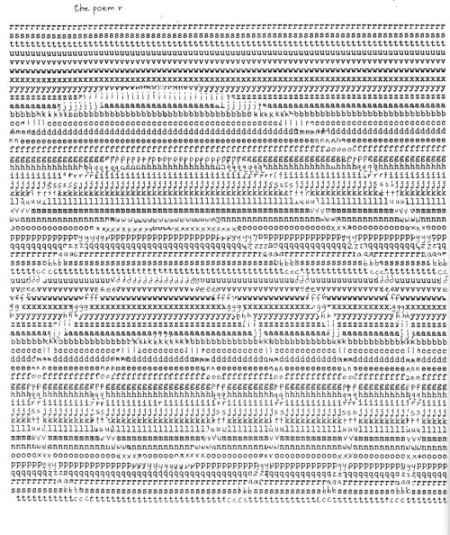




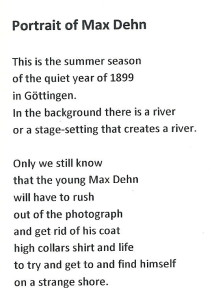
You know that Kevin Kelly guy always reminded me of Surllama for some reason.
I’ve always suspected they were one and the same–the two l’s in Surllama are strong evidence of it. And, of course, they are both maximally crude fellows. . . .
Ha, ha! Remember Todd Russell aka Huck Finch? He told me before I moved to California, something to the effect of: “Don’t let California change you, Surllama, I mean Kevin” and I remember thinking, “Nothing can change me!” … and then I became a snob. It happened about four years ago, to be exact. I’ll have to admit, it felt good to give in, like a warm bath of salt.
But seriously, sir, I’m trying to ONLY comment on the stuff I like (hence, the scarcity of any comments … I kid!) … and I like this here poem. I have to admit, I’ve always liked your poetry when you start talking about the tide and the phone ringing to itself, etc. My favorite line by far: “like misspelled lemonade” Good imagery! So there.
Well, I’ve always said negative comments are more helpful than positive ones, but your positive ones have definitely been helpful. As for Huck, we’ve exchanged e.mails since you’ve left. He’s sent me invitations to the parties he yearly has, but I’ve not yet been able to get to one. You should e.mail him, or facebook him. I think he’s on Facebook.